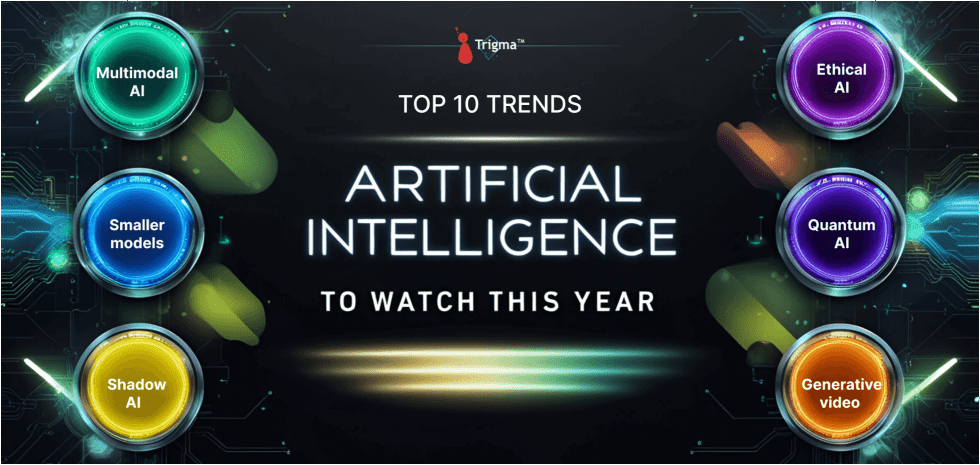
Top Trends in AI Technology to Watch
- 0
Artificial Intelligence (AI) has become a game-changer in various industries, revolutionizing the way we work, communicate, and interact with technology. As we move further into 2021, it’s important to stay up-to-date with the latest trends in AI technology to remain competitive in this fast-paced digital world. Here are some of the top trends in AI technology that you should be watching:
1. Explainable AI
Explainable AI, also known as XAI, is a growing trend in the AI industry. It focuses on making AI systems more transparent and understandable to users. With the increasing complexity of AI algorithms, it’s crucial for users to understand how AI systems arrive at their decisions. Explainable AI aims to provide insights into the reasoning behind AI decisions, helping to build trust and credibility in AI technologies.
2. Edge AI
Edge AI is another trend to watch in 2021. Edge AI refers to the deployment of AI algorithms on devices at the “edge” of the network, such as smartphones, IoT devices, and edge servers. By processing data locally on these devices, edge AI reduces latency and improves real-time decision-making. This trend is particularly important for applications that require low latency and privacy concerns, such as autonomous vehicles and healthcare devices.
3. AI Ethics and Bias Mitigation
Ethical concerns surrounding AI technologies have been gaining more attention in recent years. As AI systems become more integrated into our daily lives, it’s important to address issues of bias, fairness, and accountability in AI algorithms. Companies are increasingly focusing on developing AI technologies that are unbiased, transparent, and respect user privacy. AI ethics and bias mitigation will continue to be a significant trend in the AI industry in the coming years.
4. Generative AI
Generative AI is a cutting-edge technology that has gained popularity in recent years. This type of AI algorithm can create new data, such as images, videos, and text, based on patterns in existing data. Generative AI has a wide range of applications, from creating realistic deepfake videos to generating new music compositions. As generative AI continues to advance, we can expect to see more innovative applications in various industries.
5. Autonomous AI
Autonomous AI refers to AI systems that can operate independently without human intervention. These systems can learn, adapt, and make decisions on their own, without the need for human oversight. Autonomous AI is already being used in autonomous vehicles, drones, and robotic systems. As technology continues to evolve, we can expect to see more use cases for autonomous AI in areas such as manufacturing, logistics, and healthcare.
6. AI-powered Cybersecurity
Cybersecurity is a growing concern for businesses and individuals alike. With the increasing number of cyber threats, AI-powered cybersecurity solutions are becoming essential for protecting sensitive data and networks. AI algorithms can detect and respond to security threats in real-time, helping to prevent data breaches and cyber attacks. AI-powered cybersecurity will continue to be a top trend in the tech industry as the need for robust security measures grows.
7. AI in Healthcare
The healthcare industry is increasingly turning to AI technologies to improve patient care, diagnostics, and treatment outcomes. AI algorithms can analyze medical imaging, predict disease outcomes, and assist healthcare professionals in decision-making. With the rise of telemedicine and remote patient monitoring, AI technologies are playing a critical role in providing quality healthcare services to patients worldwide. AI in healthcare will continue to be a significant trend in the coming years, with the potential to revolutionize the industry.
As we look ahead to the future of AI technology, it’s clear that these trends will shape the way we interact with AI systems and the impact they will have on our daily lives. By staying informed and adapting to these trends, you can position yourself as a leader in the rapidly evolving field of AI technology.
